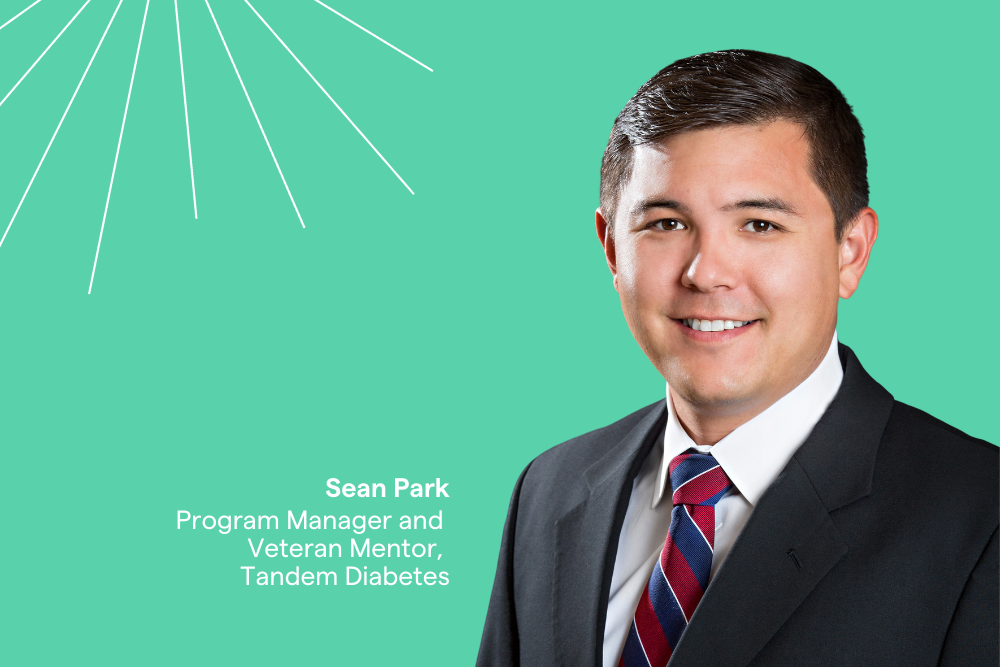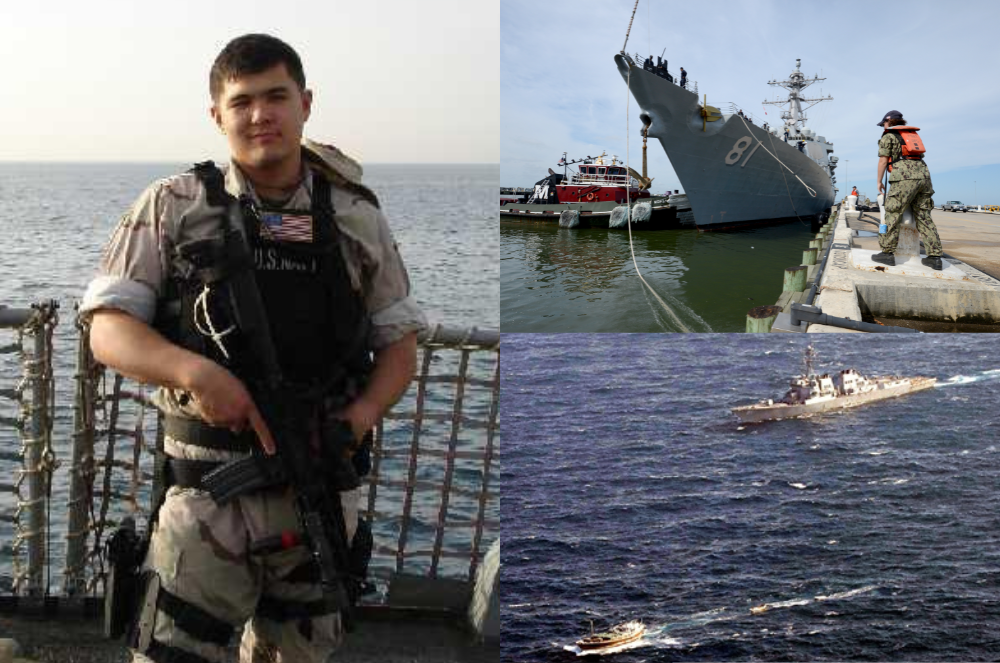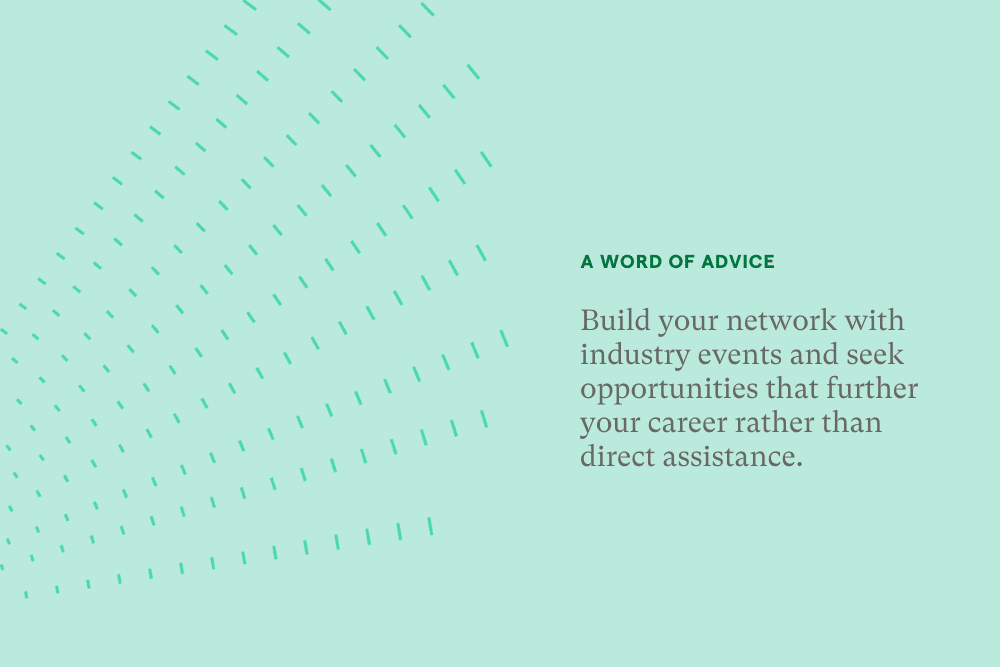November 10, 2023
Member Spotlight: Tandem Diabetes

Sean Park, Former Fellow of Biocom California Institute’s Veterans in Life Science Program, Reflects on His Dynamic Navy Career and How Working in Life Science is ‘Service After Service’
A key moment of Sean Park’s military career sounds like a scene out of an action film. While working as an electronic warfare operator and on the VBSS (visit, board, search and seizure) team in the U.S. Navy, Sean was part of the security force involved in a historic mission in the seas off the Horn of Africa. In January 2006, Sean was deployed on the USS Winston S. Churchill, a Navy destroyer which intercepted and helped capture a group of alleged Somali pirates who hijacked the Safina Al Bisarat, an Indian fishing ship. The USS Winston S. Churchill pursued the stolen vessel for two days, and Sean and his team boarded the ship and took the pirates into custody. This was the first time in 200 years that the U.S. Navy captured pirates on the open seas, and Sean received a Navy and Marine Corps Commendation Medal for the mission.
Sean transitioned out of the Navy in the mid-2000s and has since found a new career in life science. He was a fellow in Biocom California Institute’s Veterans in Life Science program, and says the industry allows him to apply his ethos of living a life of “service after service.” Today, he’s senior program manager at Tandem Diabetes in the IT, privacy and security department. In celebration of Veterans Day, we spoke with Sean about how he transitioned to civilian life, the importance of aligning with your values, and why life science companies in California should consider hiring veterans (and what steps they can take to recruit them).

Left: Sean Park during the January 2006 mission; photo courtesy of Sean Park. Right, top: A 2019 file photo of the USS Winston S. Churchill, an Arleigh Burke-class guided-missile destroyer; U.S. Navy photo by Mass Communication Specialist 1st Class Joshua D. Sheppard. Right, bottom: The USS Winston S. Churchill follows a suspected pirate vessel in the Indian Ocean on Jan. 21, 2006; photo by U.S. Department of Defense.
Would you say this moment of being part of a historic mission was the highlight of your military career?
That was definitely my 15 minutes of fame! [Laughs]. I would say that was one of the things I look back at as a key moment of my service. There have been so many moments—but just having the opportunity to serve with others has been most important. I had the opportunity to stand next to my shipmates, men and women, wearing our nation’s cloth and doing our nation’s bidding. That was like no other.
What made you decide on a career change and to transition to civilian life?
In my particular case, the job I had was dissolved and merged with another job. Because of that, it was difficult for me to be promoted—I stayed in the same rank and position for four years. As an enlisted person, I wanted to become an officer to have more responsibility and lead others. But I decided to leave the Navy so I that could get my education and further myself professionally.
What is a skill you gained during your time in the Navy that you still apply regularly at work and in your day-to-day life?
Definitely attention to detail.
As an electronic warfare operator, we would look at a radar’s parameters and figure out what kind radar it was. That radar would then match to either a ship, sub, or airplane. Those platforms would have weapon systems, and I could tell you what weapon it has—which type of missile, the range it has, and how you defeat it. The details mattered, and if you get something off just slightly, you could be looking at a completely different potential threat.
My first Navy chief—my first manager, so to speak—would ask us questions and drill us about our job. If we didn’t have the answer, he would say, ‘go look it up in a book.’ We had stacks of books that we would have to go through line by line. This helped us gain technical knowledge and the attention to details to learn.
I apply this every day as a program manager, as attention to detail is important—everything matters.
How did you make the transition to life science?
After I completed my bachelor’s degree in business, I landed a position at a company but the job didn’t align with my values. I pursued a pilot’s license, mistakenly thinking that I could make all the money in the world and that pilots are rich. But that couldn’t be further from the truth! [Laughs]. However, pursuing that gave me the confidence to leave one industry and go to a different one.
While I was soul searching and figuring out what I wanted to do, I attended a networking event and stumbled upon project management. I learned that you could get paid to manage projects—which I already liked and do all the time on my own. My family owned a roofing company, and I would help them manage some of those projects. I learned more about it, started getting certifications, and got an advanced degree in project management. I then started volunteering for the San Diego chapter of the Project Management Institute.
How did you get involved with Biocom California’s Veterans in Life Science fellowship program?
After I got my PMP certification, I moved into software and IT project management within the Department of Defense. But I had been in the defense industry for so long and I started to wonder what else was out there, and I learned there’s this ‘thing’ called life sciences.
I wanted the opportunity to work with the people in this industry—everyone seemed so incredibly intelligent—and it would push myself more as a professional. I searched around and discovered the Biocom California Institute. They had an event on learning about life sciences in San Diego, and I thought, ‘this is exactly what I need.’
I didn’t understand at the time that the event was to explore fellowship opportunities. They gave a wide overview of the industry, and I remember taking pictures of the event and thinking: ‘There’s so much to learn here, and this is a whole world that I’ve never even known existed.’
I am definitely an advocate for Biocom’s fellowship program, and I tell everyone about it—that if you want to get into life sciences, you have to connect with Biocom!
California is home to more than 1 million veterans, the most out of any state. In 2021, more than 37 percent of the state’s veterans held a bachelor’s degree or higher, and 300,000 served in September 2001 or later. What is one thing that life science companies can do or should do to recruit more veterans?
There were a lot of barriers to entry for me. When I was first looking for a job, everyone asked, ‘How many years of experience do you have in life sciences?’ My answer of course was ‘zero,’ but I felt like they assumed I didn’t know what I was doing. I would beg to differ, because working in life sciences we’re following CFRs [Code of Federal Regulations], and the military does the same thing—it’s also highly regulated, it’s just a different set of rules.
I think the industry could do more to court veterans, such as getting involved with Biocom’s veterans program and going to some of the local networking organizations. For example, I am also involved with Veterans Beer Club—it started in San Diego and has gone national. Many people who attended Biocom’s veterans fellowship are also a part of it. It’s informal, your rank doesn’t matter. It’s a way for veterans to connect if they’re looking for a job, and people who are with a company that is hiring can also attend. Everyone is there to help each other, and it doesn’t cost anything.
By hiring veterans, you’re getting employees with qualities that are highly desirable in business. What it takes to be successful in the military is highly applicable in many fields.
What has been your biggest professional challenge since you switched careers?
One of the difficult things was people saying, ‘I know you were in the military, but this is how we do it here.’ I think that speaks to a wider misunderstanding of what military folks do—are they all kicking down doors and going after bad guys? No. They can train in a wide variety of skill sets. The military has IT professionals, chemists and people who are in life sciences working in national laboratories.
What’s your favorite thing about the life science industry?
I love that I have a skillset that I can use to help other people and that I have the opportunity to do it. To quote Travis Manion: ‘If not me, then who?’.
By hiring veterans, you’re getting employees with qualities that are highly desirable in business. What it takes to be successful in the military is highly applicable in many fields.
What does Veterans Day mean to you, and why is it important that we celebrate it?
Veterans Day is to honor those who are here now that served our country. It’s honoring our military for giving back to us. Everyone writes a blank check when they go into the service—they don’t know what could potentially happen—and some people did lose their lives. But veterans just signed up to serve, usually for selfless and altruistic reasons. I think that’s a really noble thing.
What is one piece of advice you have for veterans who recently transitioned to civilian life and are looking to get into life science?
Get out there and network. Ask your fellow veterans for a hand up. Attending events such as those hosted by Biocom and the Veterans Beer Club is where will you get the most value for your most precious resource: time.
